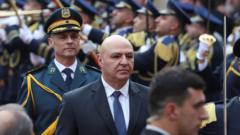The 60-year-old military leader, who has been at the helm of the army since 2017, was sworn in wearing a suit – a departure from his military uniform – indicative of his new role in a divided, predominantly sectarian political system. Following his election, he emphasized the necessity of reforming state institutions, putting a priority on asserting the Lebanese state’s monopoly on arms, a direct challenge to Hezbollah. Additionally, he pledged to address extensive war-related damages which the World Bank estimates will cost around $8.5 billion.
Aoun's election signals an opportunity for Lebanon to stabilize politically and economically amidst ongoing crises, including a severe economic collapse and the aftermath of a devastating explosion at the Beirut port in 2020. However, his role is primarily ceremonial; he will be involved in signing legislation and facilitating government formation but will not carry executive power. Aoun's election has been met with cautious optimism from both domestic and international observers, who stress the urgent need for a functioning government and implementation of reforms.
Aoun's election signals an opportunity for Lebanon to stabilize politically and economically amidst ongoing crises, including a severe economic collapse and the aftermath of a devastating explosion at the Beirut port in 2020. However, his role is primarily ceremonial; he will be involved in signing legislation and facilitating government formation but will not carry executive power. Aoun's election has been met with cautious optimism from both domestic and international observers, who stress the urgent need for a functioning government and implementation of reforms.


















